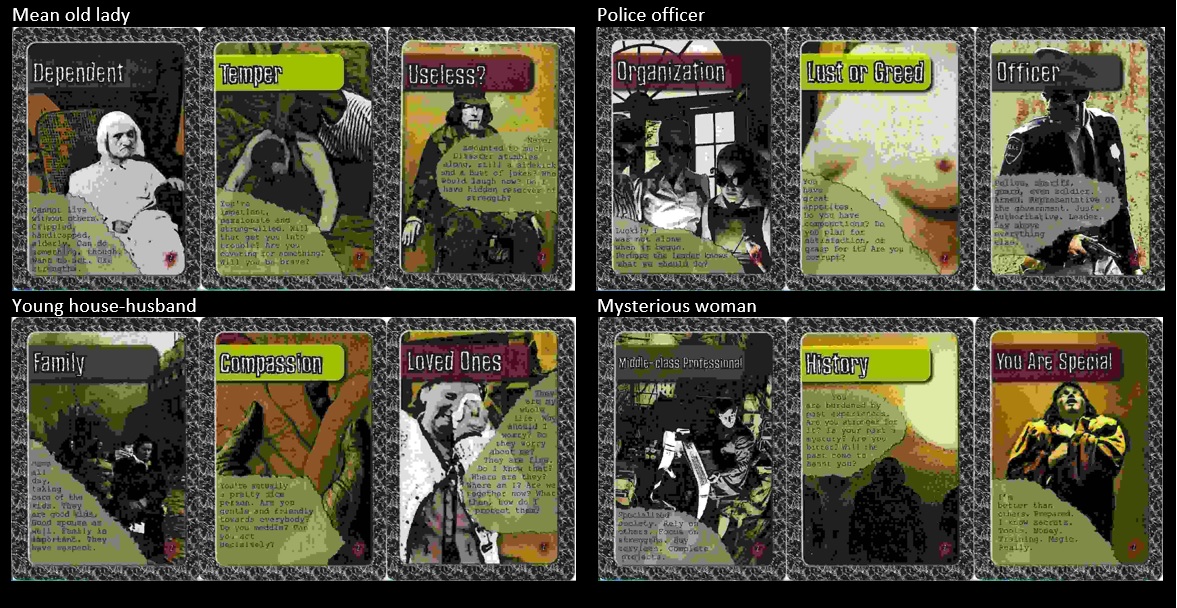When the whole group can’t make it to a Spelens Hus session, we typically play something brief and with any luck thought-provoking. I played Zombie Cinema there a couple of years ago, in a very pick-up circumstance, but the regular group hasn’t seen it, so that’s what we did. You can see in the video that “right here right now” was not only the preferred location by the group but considered obvious. We began play at the Apotek (drugstore) quite close to us.
Included in the video presentation for the previous game, Why zombies matter, is a short piece by me about the game in general, which you might find useful. With that content in mind, I was especially concerned this time in making sure that people didn’t descend into what might be called free-form hysteria and instead use the actual rules for who says what happens.
I guess I got a partial success on my roll to do so, because we did that very well for all play which didn’t concern rolls, but for rolled outcomes, the narrating person should be the high roller, not the current active player. That’s the mechanical difference in allying vs. support – if you ally, you roll your own die and therefore may turn out to be the narrator, whereas if you support, the person you’re supporting rolls both your own die and theirs, so you aren’t eligible to narrate. Anyway, I messed that up so the active player typically did the narrating.
I realized that the cards we drew for our characters included one that YouTube might get snippy about, so I didn’t use it in the video. I’d really like to celebrate the technique here, so these are the cards in question:

[The original Finnish version used sticks, not cards, which used the same principles and can be considered the same for purposes of discussion.]
To summarize further: Nathan played the mean old lady, whom he found appropriate not to name; Max played Carl, the police officer; I played Magnus, the nice young dad; and Henna played Frida, the curiously knowledgeable and prepared woman. I call attention especially to Nathan’s in-play answer, via action, to the question mark on the Useless? card; to Max deciding not to force the Lust or Greed content into play when it didn’t really find a good reason to arise; and to Henna nailing “my character knows what’s going on” without falling into the typical and always useless zombie story trap of explaining everything.
The pawn-and-board mechanics – again, see the older video at the above link for details – put us into lots of decision-points toward the very end. You can see us take the time to understand them when Magnus met his end. We didn’t discuss them so much as apply them in no uncertain terms after Frida was the last character, repeated through at least two turns, in which people decided where to put their dice for her conflicts, which were all necessarily against the zombies.
The game offers a great deal to learn and to apply for other play. I think it’s one of the best teaching-tools we have.

